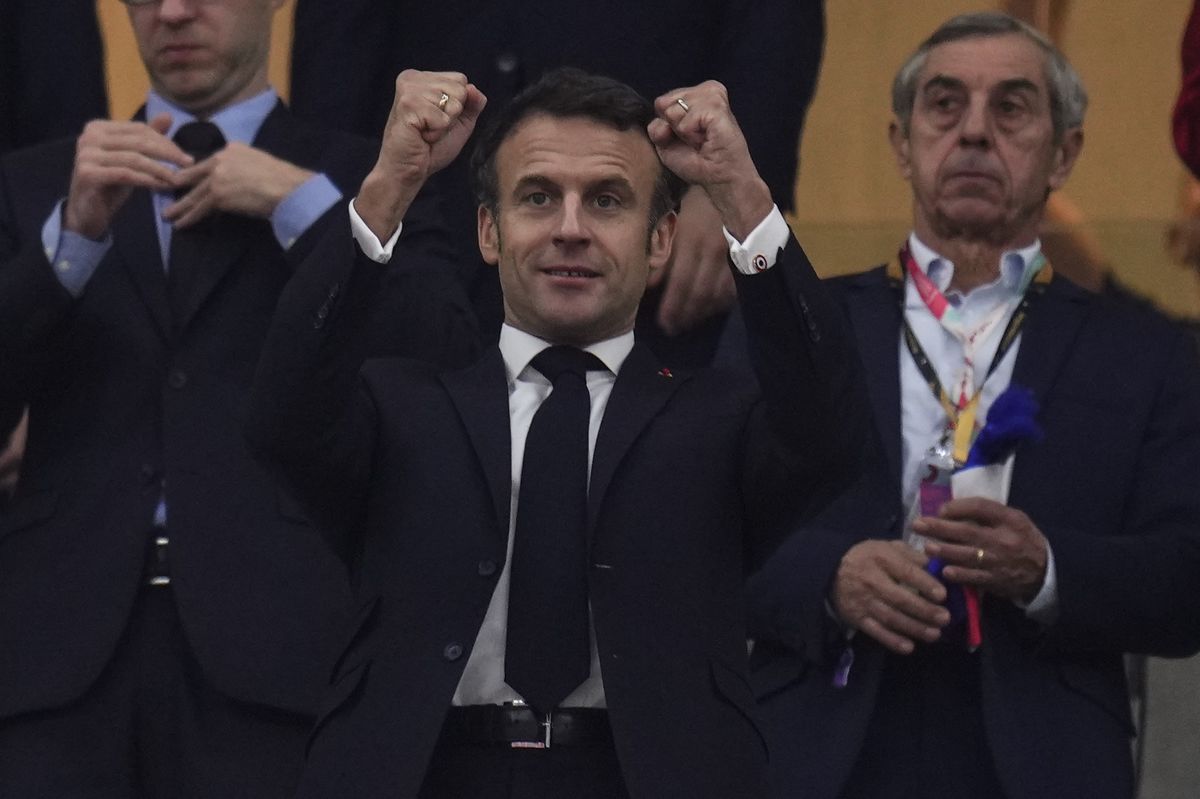By Evi Tsakali,
“Everything is politics”, I hear very often, yet have never concluded whether I agree or not. Certainly, various of our actions can have a deeper meaning and constitute political statements, however, not everything, especially when it comes to unfortunate events and/or events with a great social impact — such as the context of children rights’ violations in Greece as illustrated by successive scandals this year; can be (or at least should be) politics. Our politicians beg to differ though. It is amazing how each politician profits from current affairs to shape their own communication strategy, and France’s President Emmanuel Macron could be a case study by himself. The political communication that Macron, be it considered successful by some, or doomed by others, is certainly remarkable.
Public Relations for all tastes: From De Gaulle to the boy next door
During my studies in France and especially on the occasion of the April 2022 Presidential Elections, I could not but notice how Emmanuel Macron appeals to the French people by segments, as if he dissects his audience in social groups, with a principal criterion being that of age.
Are you reminiscing about a glorious past when France had great, “true” leaders that represented the country with power in the international arena? It is this nostalgia that Mr. Macron strives to satisfy you. Either by accompanying his accession with the Ode to Joy as François Mitterrand did at the Pantheon in 1981 or by summoning the unconscious of the people by putting on a De Gaulle-like posture in some of his speeches, Macron is eruditely invoking the political memory of the elders.
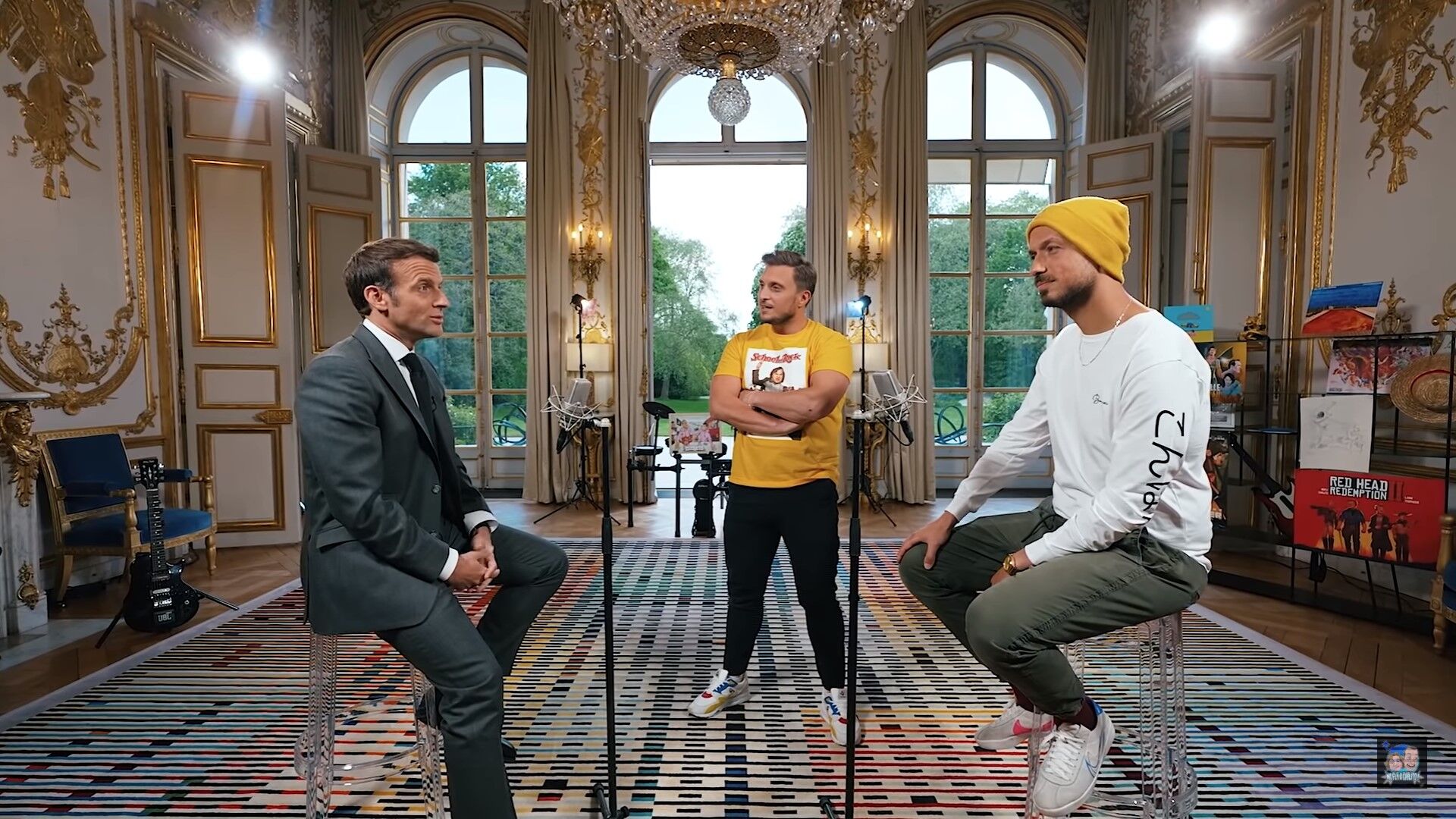
When it comes to his favorite target group, the youth, the French President leaves behind the Mitterand/De Gaulle façade and transforms into the chill boy next door, who is making videos with the YouTubers Mcfly and Carlito to incite young people to get vaccinated or make a statement in honor of Samuel Paty (which had been strongly critiqued by the whole political spectrum). What is most interesting though, is how he has chosen to use social media in this process…
From TikTok to Tinder, your friend Manu
Emmanuel Macron has been one of the first leaders to use the GenZers top social medium with such consistency; whenever he wants to address the below 30 age group, he posts quick videos — usually casually dressed and selfie style — on his very popular TikTok account. Nevertheless, the time when he crossed the line was when he went on dating apps (and not for personal purposes).
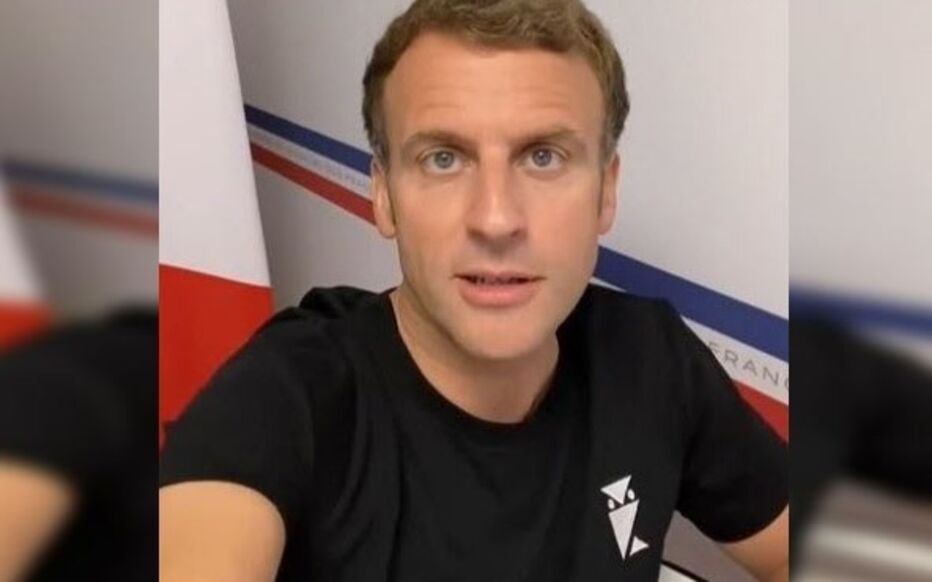
On Valentine’s Day 2022, users of dating apps such as Tinder, Bumble, or Grindr could match with a peculiar profile; a profile under the name of the campaign Jeunes Avec Macron (Youth With Macron), featuring a profile picture of a sensual couple. The bio description? “Viens matcher avec la démocratie” (Come match with democracy). The existence of this profile was condemned by the quasi-totality of said platforms, whose representatives that their services are not offered for political purposes.
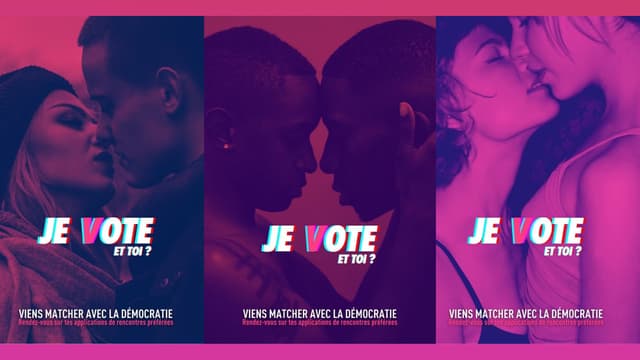
For the love of the game: Macron in Qatar for the FIFA World Cup 2022
Sports can be an opportunity for a politician to test their talent in communications (whereas Eva Kaili tested her talent in corruption). Macron did seize the opportunity, but the outcome was quite awkward, if not debatable. The French head of state made the decision to go to Qatar to attend the FIFA World Cup; a decision that was attacked by the opposition, especially by the head of the Green Party and former Greenpeace activist Yannick Jadot, who pointed out that Macron preferred to go to the Final rather than attend the COP 15 for Biodiversity in Montréal, albeit a study of Odoxa showed that 65% of the French people agreed with the President’s decision (I need to note, for the record, that the survey was conducted for Le Figaro, a media outlet traditionally oriented towards the political right).
According to Philippe Moreau-Chevrolet, Professor of Political Communication at Sciences Po, this obsession of politicians to invest in communications even on the occasion of sports can sometimes turn against them, because “forcing it too much can make politicians seem intrusive. Especially at such times, politics is not desired. Being clumsy, it is therefore perceived as inappropriate by the public opinion”.
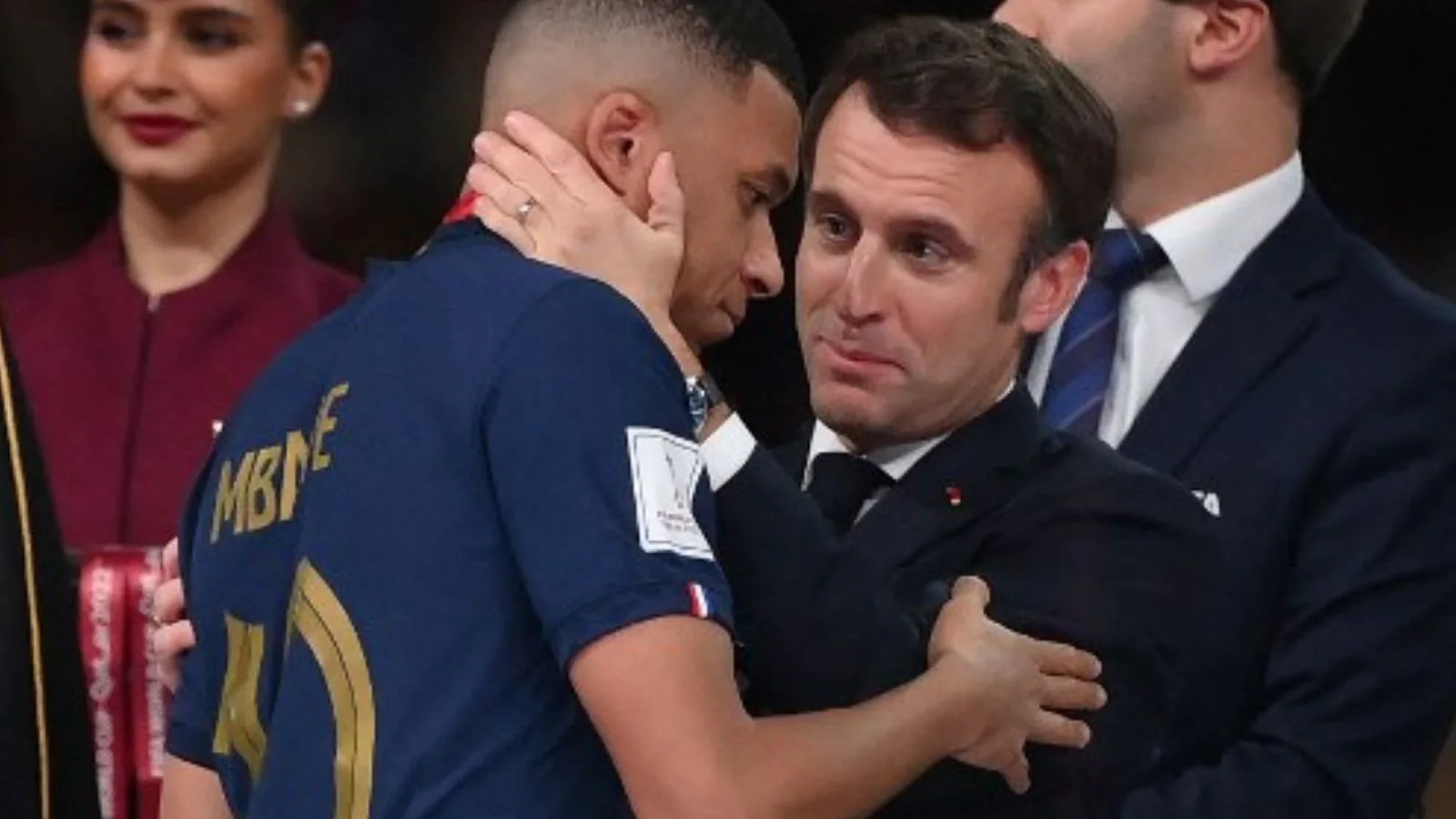
That was exactly what happened at the Argentina vs France World Cup Final match. France, despite being a very worthy opponent, lost the match and thus the title to Argentina. Even watching the Final from Greece, you could see that the camera shifted to the French President every once in a while, showing his extravagant display of support for the Bleus and passion for the sport. Last but not least came his very insistent attempt to console the team’s captain Kylian Mbappé in spite of the fact that both he and his teammates made it very clear via their body language that Macron’s gesture was not very welcome at the moment.
All in all, Macron’s attempt to demonstrate an image of a football fan who is not at all the snob president of the rich that some people consider him to be was not very efficient. His communication scheme certainly does not lack creativity, but the President and his comm team need to always remember to respect the moment (and if not for a defeat in the World Cup, at least in more serious situations)…
References
-
Macron va recevoir la facture politique de son opération de communication au Qatar. publicsenat.fr. Available here
-
Le coup de com des Jeunes avec Macron dans le viseur des applications de rencontre. challenges.fr. Available here
-
Polémique autour de la vidéo de rentrée de Macron avec McFly & Carlito et Samuel Paty. europe1.fr. Available here
-
French presidential candidates fight for youth vote on TikTok. france24.com. Available here

